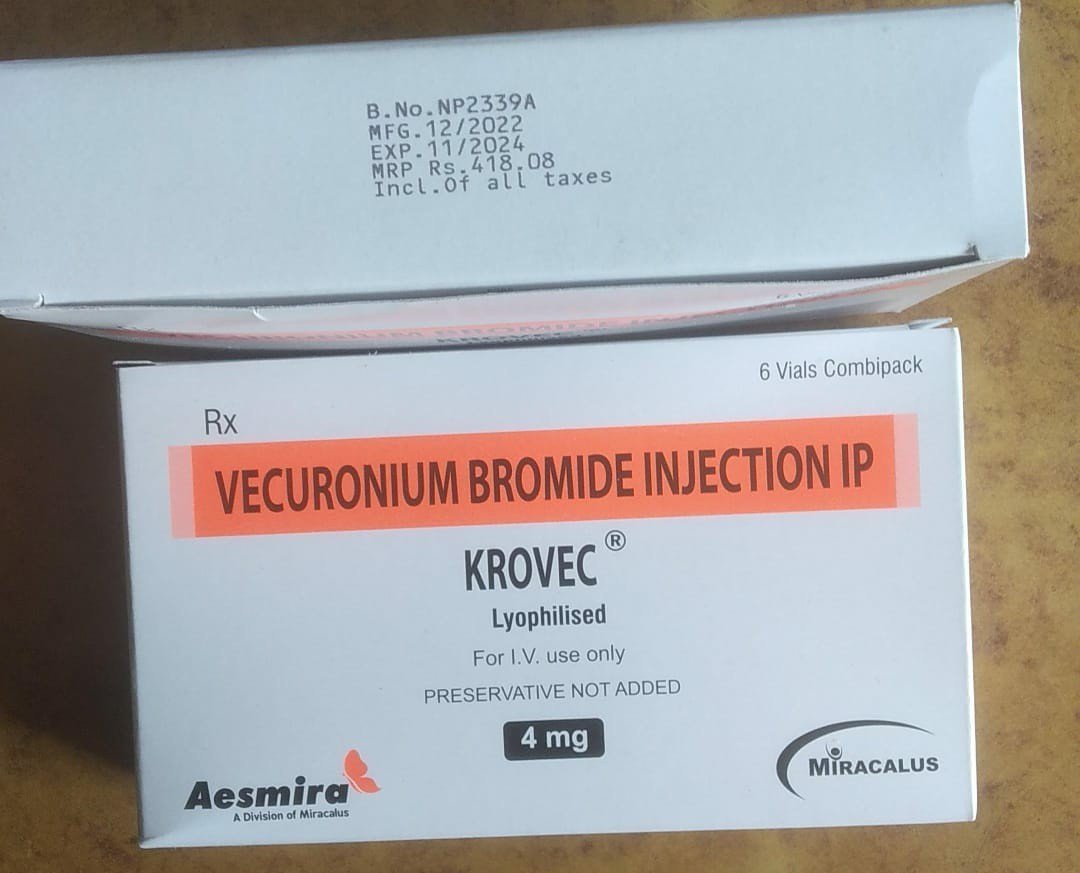What is this medicine for
This medication is a muscle relaxant, prescribed for relaxing muscles during surgery and mechanical ventilation (assisted breathing).
How does it work
It works by blocking nerve transmissions in muscle nerves.
How should this medicine be used
It comes as a solution for injection to be administered by a healthcare provider into the vein.
Common side effects of this medicine
Severe allergic reactions, dizziness, muscle weakness, fever and fastslow heart rate.
What do I do if I miss a dose
---------------------------------
What precautions should I take when taking this medicine
If you have an allergy to vecuronium or any other part of this drug. If you have an allergy to benzyl alcohol, talk with your doctor. Tell your doctor if you are allergic to any drugs. Make sure to tell about the allergy and what signs you had. This includes telling about rash; hives; itching; shortness of breath; wheezing; cough; swelling of face, lips, tongue, or throat; or any other signs.
When do I need to seek medical help
Signs of a very bad reaction to the drug. These include wheezing; chest tightness; fever; itching; bad cough; blue or gray skin color; seizures; or swelling of face, lips, tongue, or throat. A fast heartbeat. Very bad dizziness or passing out. Any rash. Side effect or health problem is not better or you are feeling worse.
Can I take it with other medicines
Sometimes drugs are not safe when you take them with certain other drugs and food. - Taking them together can cause bad side effects. - Be sure to talk to your doctor about all the drugs you take.
Are there any food restrictions
Avoid Alcohol
How do I store this medicine
Normally handled and stored by healthcare providers.
Pregnancy Category
Category C : Animal reproduction studies have shown an adverse effect on the fetus and there are no adequate and well-controlled studies in humans, but potential benefits may warrant use of the drug in pregnant women despite potential risks.
Therapeutic Classification
Muscle Relaxants













 Home
Home Brands
Brands Products
Products About Us
About Us Contact Us
Contact Us